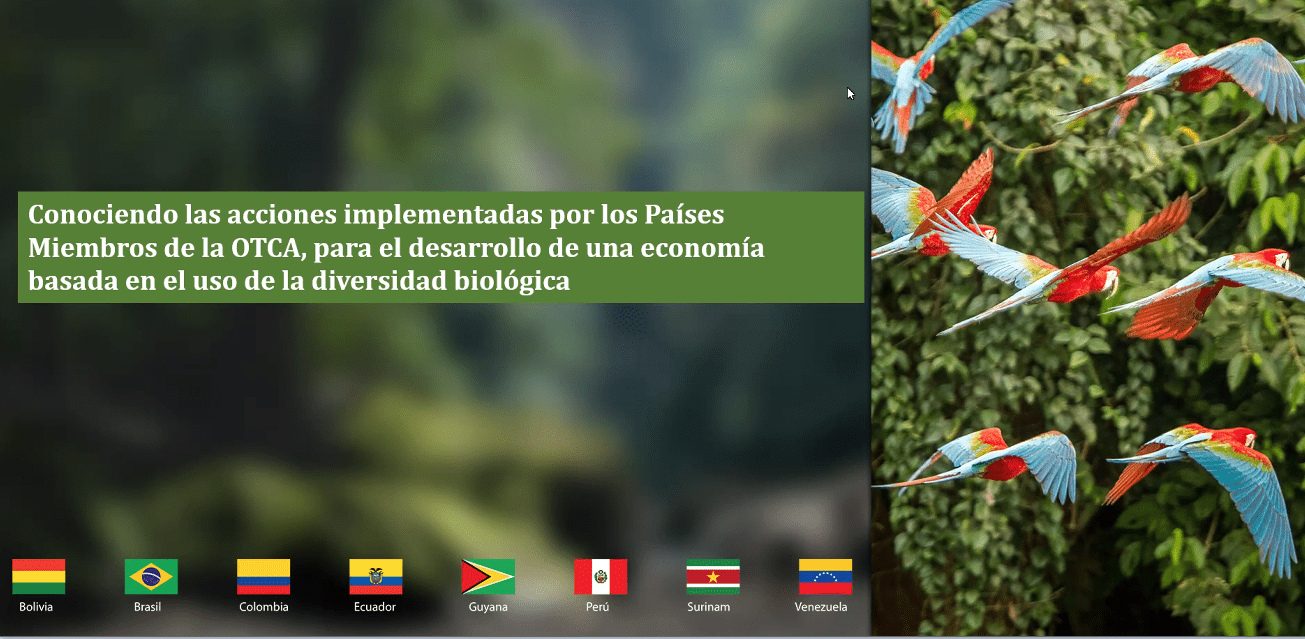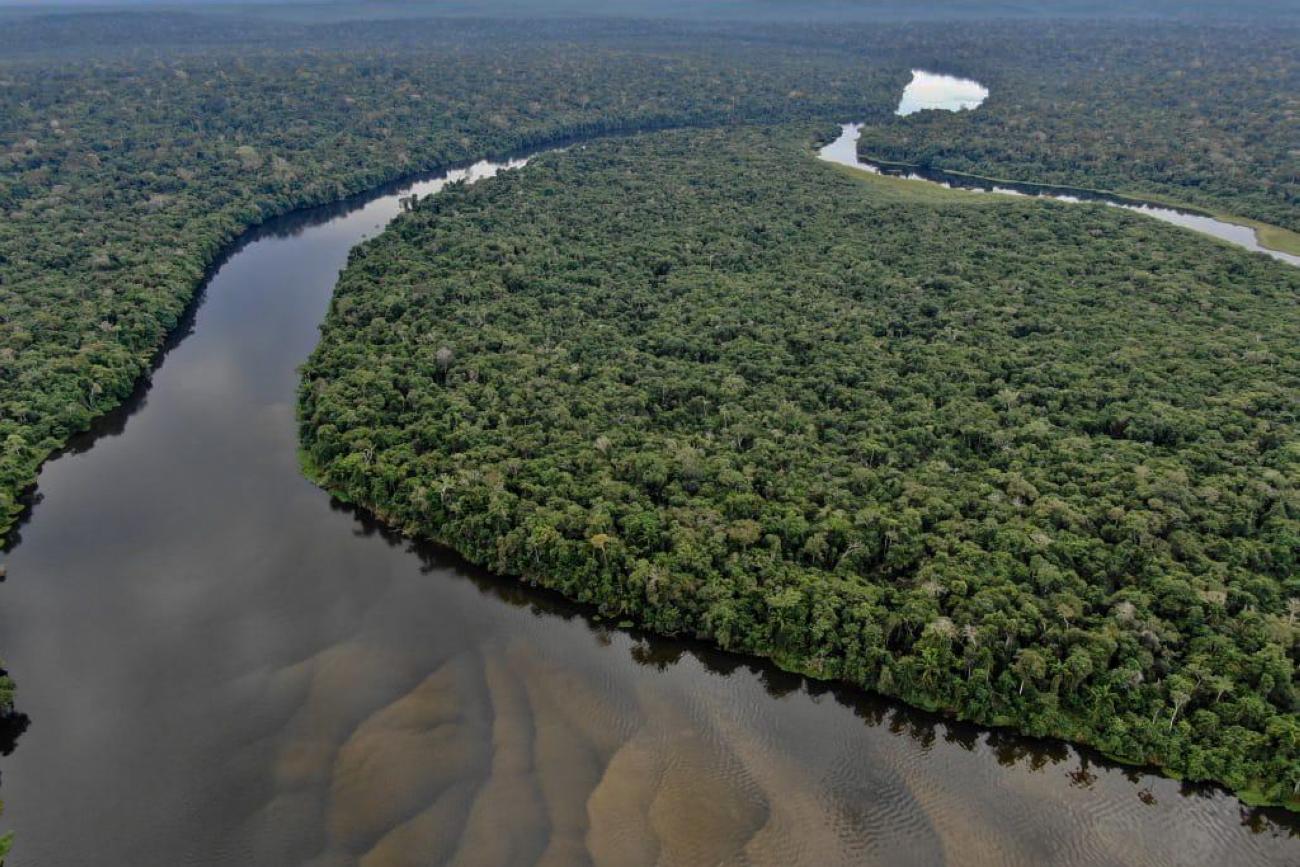The objective of discussions was to learn about successful strategies and actions aimed at the development of an economy based on the use of species and/or products of the Amazonian biodiversity, observing the laws of each Member Country.
Explaining economy based on the use of biological diversity can be understood in different and have different terminologies. The Organization for Economic Cooperation and Development (OECD) recognizes that there is no universally accepted concept for bioeconomy, and this term has different meanings in different nations [1].
In general, approaches such as the economy of nature/bio-commerce/bioeconomy or similar uses presuppose promoting the use of renewable and biological resources for economic growth and the generation of knowledge-based jobs; the regeneration of vital ecosystems and biodiversity; population well-being; also, it may presuppose greater efficiency in the use of resources in all economic sectors. “In this way, the researchers affirm that different approaches in strategies development are linked to natural resources availability, being these resources and their use and management the center of the sustainability of the economic strategy” explains Vicente Guadalupe, specialist of the ACTO Bioamazon Project.
Based on the different approaches, the Amazon Cooperation Treaty Organization (ACTO) is promoting discussions with the Member Countries (MC) to exchange knowledge about and systematize models, strategies, experiences and successful actions that are being implemented in the MC, which are oriented towards the development of an economy based on the use of species and/or products of the Amazon biodiversity, according to the laws of each of the countries.
In this sense, on June 23, the webinar “Knowing about the actions implemented by the Member Countries of ACTO for the development of an economy based on the use of biological diversity” was held. The countries presented their strategies and actions, and this information will serve to define a conceptual framework for the ACTO on bioeconomy or similar approaches, so the organization will be able to work alongside the MC in the development of initiatives or in the formulation of projects aimed at promoting or strengthening actions that favor economy based on the sustainable use of Amazonian biodiversity. This important information presented in the webinar will also support the development of the Regional Platform of micro, small and medium-sized enterprises (SMEs) of the Amazon Regional Observatory.
Presentations
During the virtual event, the delegations of the ACTO Member Countries presented their strategies and actions.
Colombia presented “Negocios verdes” that, since 2010, its strategic axis is the policy for sustainable production and consumption. The strategy’s goal is by 2030 there will be 12,630 green businesses verified and linked to the Regional Green Business Planning. Currently, there are 4,000 green businesses tested and linked in 750 municipalities in Colombia and, by 2022, the goal is to include another 233 green businesses.
In the Colombian Amazon, there are 487 green businesses verified and linked in six departments with 4,220 employees and $18,402 million pesos in reported annual sales. The strengths considered are the diversity of fauna and flora, the high purity and nutritional value of fruits, flora with potential for medicinal, cosmetic, food and ecotourism use, and ancestral knowledge and artisanal wisdom. On the other hand, the lack of studies, permits, registers and certifications for marketing, high transport and logistics costs of products and intermediaries are considered the current weaknesses, along with the lack of infrastructure, machinery, equipment, tools and satellite internet, in addition to lack of marketing strategies.
Green businesses in Colombia are considered “economic activities in which goods or services are offered generating positive environmental impacts. These also incorporate good environmental, social and economic practices, with a life cycle approach, contributing to the environment conservation as natural capital that supports the development of the territory,” explained Carla Blondineth Mosquera Zapata, Coordinator of competitiveness and promotion of green businesses of the Ministry of Environment and Sustainable Development.
The delegate of Peru, presented the legal framework and public policies devoted to strengthening the economy articulated to the use and management of biodiversity. He explained about the existence of priority gaps such as the recovery and conservation of agrobiodiversity, enhancing ancestral good practices in the management and of native genetic resources and their wild relatives, and the agro-ecosystems that host them; pilot experiences demonstrating that participatory community management of forest resources is viable and economically, environmentally and socially sustainable; and the recovery of ancestral traditional practices of planting and harvesting water and the co-management of fisheries with Amazonian communities and other local groups.
The event presented a summary of the “Project Value Chains Free of Deforestation in the Peruvian Amazon” and the “Program to Promote Sustainable Financing in the Peruvian Amazon – Opportunity to leverage bio business””. The Eco and Bio business Catalogue of the Ministry of the Environment (MINAM) is a tool designed to articulate the offer of goods and services of eco and bio business with national and international markets; it contains 654 products that value biodiversity and make efficient use of resources. The catalogue is available in Spanish here.
The representative of the Peruvian delegation, Jaime Delgado, also stressed that Peru is the center of species origin and of many varieties of cultivated species. It is a heritage received from ancient cultures and has native genetic resources, that are vital for the food security of the population, in which more than 65% of agriculture depends on them. “Peru’s natural capital contributes more than 15% of the national GDP,” he said.
ACTO’s Administrative Director, Carlos Salinas, expressed that the ACTO is committed to the Amazon region and the Member Countries for the sustainable use of natural resources and to try to reduce asymmetries among countries. “ACTO considers fundamental an economy based on the sustainable use of biological diversity, as it is an important source of natural resources and because local populations and indigenous peoples depend on it. For sustainable use and the development of an economy based on the use of biological diversity several factors are required, such as financing, training and markets. Therefore, these whole set of issues and factors need to be studied and understood to carry out the development of an economy”, he stated
Published in the Bioamazon Newsletter, edition n.15, May-June 2022.
========================================================================
[1] Meeting Policy Challenges for a Sustainable Bioeconomy, 2018, pág 14: https://read.oecd-ilibrary.org/science-and-technology/policy-challenges-facing-a-sustainable-bioeconomy_9789264292345-en#page15



